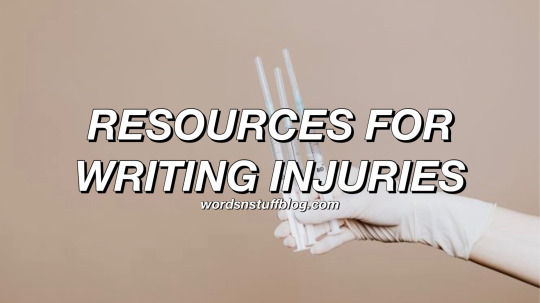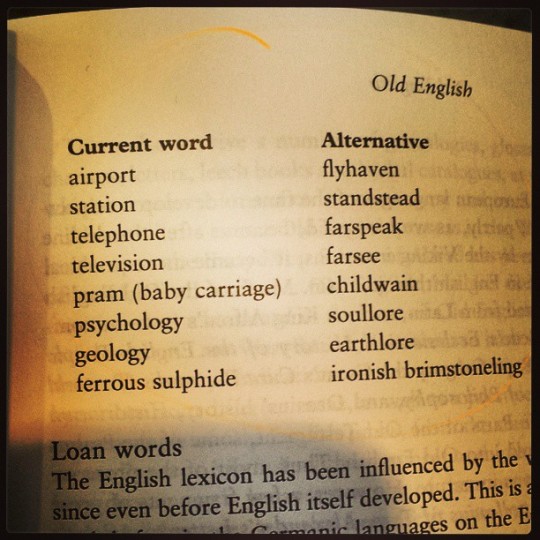20s / nb lesbian / sideblog for screaming etc. please do not follow/interact ty <3
Don't wanna be here? Send us removal request.
Text
People will literally be doing anything on ao3
10K notes
·
View notes
Text
sometimes rpf is literally just the most logical conclusion
6K notes
·
View notes
Text
I cant believe im going to make it i just cant
650 notes
·
View notes
Text
idk who needs to hear this but if you have been putting something off bc it doesn't need to be done until the end of the month. we are almost done with the teens we are approaching the big numbers (the twenties). that date shall dawn upon you swiftly and without mercy before you know it. psa for everyone except me i got plany off time
137K notes
·
View notes
Text

I’m just going to leave this here
120K notes
·
View notes
Text
last week I described my email inbox as a Sisyphean task to my coworker because that day I genuinely just could not get my email count down lower than 15, every email I opened and replied to would immediately be replaced with another new message, and today I walked into that coworkers office looking dejected again and she said “what’s wrong? Another syphilis day or whatever?”
10K notes
·
View notes
Text




(source)
one of the most beautiful vitiligo creatures, pelt like marbled stone, worthy to adorn a temple
1K notes
·
View notes
Photo


A Night at the Patrician’s palace
(by mari.o)
4K notes
·
View notes
Text
Resources for Writing Injuries

Patreon || Ko-Fi || Masterlist || Work In Progress
–
Head Injuries
General Information | More
Hematoma
Hemorrhage
Concussion
Edema
Skull Fracture
Diffuse Axonal Injury
Neck
General Information
Neck sprain
Herniated Disk
Pinched Nerve
Cervical Fracture
Broken Neck
Chest (Thoracic)
General Information
Aortic disruption
Blunt cardiac injury
Cardiac tamponade
Flail chest
Hemothorax
Pneumothorax (traumatic pneumothorax, open pneumothorax, and tension pneumothorax)
Pulmonary contusion
Broken Ribs
Broken Collarbone
Abdominal
General Information
Blunt trauma
Penetrating injuries (see also, gunshot wound & stab wound sections)
Broken Spine
Lung Trauma
Heart (Blunt Cardiac Injury)
Bladder Trauma
Spleen Trauma
Intestinal Trauma
Liver Trauma
Pancreas Trauma
Kidney Trauma
Arms/Hands/Legs/Feet
General Information | More
Fractures
Dislocations
Sprains
Strains
Muscle Overuse
Muscle Bruise
Bone Bruise
Carpal tunnel syndrome
Tendon pain
Bruises
Injuries to ligaments
Injuries to tendons
Crushed Hand
Crushed Foot
Broken Hand
Broken Foot
Broken Ankle
Broken Wrist
Broken Arm
Shoulder Trauma
Broken elbow
Broken Knee
Broken Finger
Broken Toe
Face
General Information
Broken Nose
Corneal Abrasion
Chemical Eye Burns
Subconjunctival Hemorrhages (Eye Bleeding)
Facial Trauma
Broken/Dislocated jaw
Fractured Cheekbone
Skin & Bleeding
General Information (Skin Injuries) | More (Arteries)
femoral artery (inner thigh)
thoracic aorta (chest & heart)
abdominal aorta (abdomen)
brachial artery (upper arm)
radial artery (hand & forearm)
common carotid artery (neck)
aorta (heart & abdomen)
axillary artery (underarm)
popliteal artery (knee & outer thigh)
anterior tibial artery (shin & ankle)
posterior tibial artery (calf & heel)
arteria dorsalis pedis (foot)
Cuts/Lacerations
Scrapes
Abrasions (Floor burns)
Bruises
Gunshot Wounds
General Information
In the Head
In the Neck
In the Shoulders
In the Chest
In the Abdomen
In the Legs/Arms
In the Hands
In The Feet
Stab Wounds
General Information
In the Head
In the Neck
In the Chest
In the Abdomen
In the Legs/Arms
General Resources
Guide to Story Researching
A Writer’s Thesaurus
Words To Describe Body Types and How They Move
Words To Describe…
Writing Intense Scenes
–
Masterlist | WIP Blog
If you enjoy my blog and wish for it to continue being updated frequently and for me to continue putting my energy toward answering your questions, please consider Buying Me A Coffee, or pledging your support on Patreon, where I offer early access and exclusive benefits for only $5/month.
Shoutout to my $15+ patrons, Jade Ashley and Douglas S.!
64K notes
·
View notes
Text
Ambient sounds for writers
Find the right place to write your novel…
Nature
Arctic ocean
Blizzard in village
Blizzard in pine forest
Blizzard from cave
Blizzard in road
Beach
Cave
Ocean storm
Ocean rocks with rain
River campfire
Forest in the morning
Forest at night
Forest creek
Rainforest creek
Rain on roof window
Rain on tarp tent
Rain on metal roof
Rain on window
Rain on pool
Rain on car at night
Seaside storm
Swamp at night
Sandstorm
Thunderstorm
Underwater
Wasteland
Winter creek
Winter wind
Winter wind in forest
Howling wind
Places
Barn with rain
Coffee shop
Restaurant with customers
Restaurant with few customers
Factory
Highway
Garden
Garden with pond and waterfall
Fireplace in log living room
Office
Call center
Street market
Study room from victorian house with rain
Trailer with rain
Tent with rain
Jacuzzi with rain
Temple
Temple in afternoon
Server room
Fishing dock
Windmill
War
Fictional places
Chloe’s room (Life is Strange)
Blackwell dorm (Life is Strange)
Two Whales Diner (Life is Strange)
Star Wars apartment (Star Wars)
Star Wars penthouse (Star Wars)
Tatooine (Star Wars)
Coruscant with rain (Star Wars)
Yoda’s hut with rain ( Star Wars)
Luke’s home (Star Wars)
Death Star hangar (Star wars)
Blade Runner city (Blade Runner)
Azkaban prison (Harry Potter)
Hogwarts library with rain (Harry Potter)
Ravenclaw common room (Harry Potter)
Hufflepuff common room (Harry Potter)
Slytherin common room (Harry Potter)
Gryffindor common room (Harry Potter)
Hagrid’s hut (Harry Potter)
Hobbit-hole house (The Hobbit)
Diamond City (Fallout 4)
Cloud City beach (Bioshock)
Founding Fathers Garden (Bioshock)
Things
Dishwasher
Washing machine
Fireplace
Transportation
Boat engine room
Cruising boat
Train ride
Train ride in the rain
Train station
Plane trip
Private jet cabin
Airplane cabin
Airport lobby
First class jet
Sailboat
Submarine
Historical
Fireplace in medieval tavern
Medieval town
Medieval docks
Medieval city
Pirate ship in tropical port
Ship on rough sea
Ship cabin
Ship sleeping quarter
Titanic first class dining room
Old west saloon
Sci-fi
Spaceship bedroom
Space station
Cyberpunk tearoom
Cyberpunk street with rain
Futuristic server room
Futuristic apartment with typing
Futuristic rooftop garden
Steampunk balcony rain
Post-apocalyptic
Harbor with rain
City with rain
City ruins turned swamp
Rusty sewers
Train station
Lighthouse
Horror
Haunted mansion
Haunted road to tavern
Halloween
Stormy night
Asylum
Creepy forest
Cornfield
World
New York
Paris
Paris bistro
Tokyo street
Chinese hotel lobby
Asian street at nightfall
Asian night market
Cantonese restaurant
Coffee shop in Japan
Coffee shop in Paris
Coffee shop in Korea
British library
Trips, rides and walkings
Trondheim - Bodø
Amsterdam - Brussels
Glasgow - Edinburgh
Oxford - Marylebone
Seoul - Busan
Gangneung - Yeongju
Hiroshima
Tokyo metro
Osaka - Kyoto
Osaka - Kobe
London
São Paulo
Seoul
Tokyo
Bangkok
Ho Chi Minh (Saigon)
Alps
New York
Hong Kong
Taipei
290K notes
·
View notes
Text
So I found this cool website for learning ancient languages
go wild
306K notes
·
View notes
Photo

Love this. #words #OE #English #linguistics
56K notes
·
View notes
Text
Chinese poetry in translation: the Chariot Linchpin (draft)
車舝 Chariot Linchpin, from 詩經 The Classic of Poetry aka the Book of Songs or the Book of Odes, ca. 800BC
間關車之舝兮、 思孌季女逝兮。 匪飢匪渴、德音來括。 雖無好友、式燕且喜。
Ah, the linchpin is well-fastened on the carriage wheels, Ah, I am thinking of the beautiful young lady I seek. It is not hunger or thirst, but reports of her quality[1] that draw me. Though there are no friends with us, let us feast and be merry. 依彼平林、有集維鷮。 辰彼碩女、令德來教。 式燕且譽、好爾無射。
Pheasants gather in the support of this forest by the plain. My lady is well-grown now and has such quality to teach me. Let us feast and acclaim: I love you and will never hurt you.
雖無旨酒、式飲庶幾。 雖無嘉殽、式食庶幾。 雖無德與女、式歌且舞。
Though I have no fine wine, let us drink as if we did. Though I have no delicacies, let us eat as if we did. Though my quality is nothing to my lady’s, let us sing and dance.
陟彼高岡、析其柞薪。 析其柞薪、其葉湑兮。 鮮我覯爾、我心寫兮。
Now I go up to that high mound, and separate its branches, I separate its branches, ah, and its leaves are bright with dew![2] Deliciously I see you, ah, my heart is full!
高山仰止、景行行止。 四牡騑騑、六轡如琴。 覯爾新昏、以慰我心。
I am stopped before a high mountain, stopped before a wondrous scene. Four horses in harness, six reins like a qin.[3] To see you, my bride, comforts my heart.[4]
Translation notes, with the caveat that I am just an amateur:
1. 德 “virtue” for de is sometimes a controversial translation when its meaning is as critical to the work as it is here. Unlike English virtue, which is always aligned with righteousness, de is not necessarily so. Arthur Waley famously or infamously chooses to translate it instead as power, even, in his translation of this particular poem, magical power, no idea why.
The reason why I say it’s a key word here is that “news of her virtue has drawn me” implies something along the lines of “I hear this girl has really good morals” and I think it goes somewhat beyond that, and since I want this poem to be in the context of a story, for the story that’s not why the person who is singing this poem is singing it, like, at all.
2. So 柞薪 is specifically a firewood but the branches have 葉湑 “leaves that are bright (lush with the water radical)”. 岡 mound as a word for the female mons (which is also mound) is pretty ancient; 高 high has associations with orgasm 高潮. I think in the context of a love song, the erotic qualities of the verse are there.
3. How precisely does one divide six reins among four horses? Please show your work. Unless this is some kind of imagery that I’m just not getting. A qin, if you don’t know, is a kind of zither (stringed instrument). Edit: Welp I looked it up (probably should have done that first……) and apparently even today there can be extra reins compared to the number of horses that have mysterious horse driving purposes. I don’t know shit about horses. In any event, I interpret the “six reins like a qin” is because the guy, and thus his horses, are so excited that they’ve gotten to the lady’s house that the horses are all like “let’s go” and thus the reins are vibrating like musical strings. Quite a vivid image. The overall impression is that this dude is so in ecstasy to marry this lady that he just can’t heckin’ be bothered to hold a wedding banquet, or buy good wine and food. Let’s get to the good stuff.
4. 慰 “Comfort, console” has sexual euphemism potential in Chinese that it lacks in English, though I’m not sure how far back that goes. “Self-comfort” is an extremely common euphemism for masturbation, for example; 舒服 “comfortable” is used in sexual situations where an English speaker would say “feels good”. It’s actually quite interesting to me because in English, “comfortable” is kind of, like, anti-sexy. Imagine you’re getting down with someone’s genitals and you say “how does that feel” and they say “that feels comfortable”. You’d be like “oh… okay…” This kind of connotation translation failure always fascinates me.
Finally as a last note, I really like translating ancient works, despite the difficulty, because like, nobody can actually prove that it doesn’t mean whatever you put. It might! It just freaking might! “It doesn’t mean that, it means this” Oh really? That’s great that you think so; make your own translation if you want. People were already arguing about what this meant 2000 years ago; you think you know for sure?! Freedom.
Edit: Also as a last last note, some characters in Chinese have different (or additional) meanings in classical Chinese, eg 寫 xie modern “write” ancient “fill, store”.
55 notes
·
View notes
Text
some thoughts on different approaches to translation/transliteration of Chinese kinship terms in my historical fiction
So in my completed novel, Clouds and Rain, and other works set in that universe, I use all transliterated Mandarin for vocative kinship terms, with chapter beginning notes indicating the exact meaning, eg:
“Xiao Ge, could you talk to Er Ge?” said Yinping. “He wouldn’t give me a chance… he just seized on my first attempts to explain and turned me into some kind of…”
Now a big part of the reason why I did this is the clarity that this affords, as shown in this sentence. “Xiao Ge” means “little big brother” and “Er Ge” means “second big brother”. Translating these terms makes an easy and intimate two-syllable appellation into a five-syllable weirdness ; substituting a simple “brother” is not sufficiently clear; using names instead flattens information of relationship which is so culturally important.
(Translating gets even weirder when it comes to more distant relationships by English standards. Take this line: “Shushu, Tangge, Tangjie… welcome to Jianye,” she said. Father’s Younger Brother, Paternal Clan Big Brother, Paternal Clan Big Sister? Just try to imagine saying that out loud.)
Now with the in-progress The Instructress I decided to try the opposite approach and use no transliterated kinship terms. Instead, people use the English terms if they work; if they don’t work, they use names or near equivalents that give a similar mood and meaning, eg:
Sima Yi shook his head at that. “My dear, I have waited too long to wait any longer to hear you call me father. Lady Zhang and I both count you as a daughter, you know.”
Now in the English here, I have Sima Yi asking Yuanji to call him father; but as I imagine it, he is actually asking her to call him 公公 gonggong, father-in-law, and saying that he and Lady Zhang both consider her as an 兒媳 erxi, daughter-in-law. The reason I went for “father” and “daughter” is that because the closeness of the Chinese terms is so much greater than the English, so I felt the emotional impact of the request that she start calling him that even though she technically isn’t married to his son yet was better conveyed this way.
Reading back over both works, I’m not sure which I prefer. There’s a lot I like about the former approach, but it does make an already opaque and intimidating culture (to most English-speakers) seem even more involved and difficult to comprehend. But the latter approach by necessity means flattening out information. The aforementioned lines would probably become “[Name], can you talk to [name]?” when normally a younger sister would never use an elder sibling’s name; “Uncle, [name], [name],” which basically entirely leaves out an exact relationship which the original culture considers important.
It’s a clash between specificity, world-building, accuracy, cultural immersion on one side, and accessibility, immediacy, comprehension on the other side.
This is why translation in general is so frustrating yet fulfilling.
34 notes
·
View notes
Note
Hi! I'm newish to C-drama and I've gained an interest in the Chinese language lately. So I've been duolingoing away and reading tumblr posts about this and that, and now I stumbled into your post about naming your characters in Chinese. All good, all great, I understood as much as I could, and this ask has actually nothing to do with the naming. In your post you shared a saying: 瑕不掩瑜 “a flaw does not conceal the rest of the gemstone’s beauty; a defect does not mean the whole thing is bad”. (1/2)
tricksandthunder
said:
THAT'S SO MANY WORDS. FOR ONLY FOUR CHARACTERS. I mean I understand the language doesn't work similarly to Indo-European languages and all the word meanings can be symbolid but... still?? It just boggled my mind. Would you mind deconstructing this sentence and telling me how you get from 4 symbols to a two-line sentence? I feel like I'm missing something here. Thank you!
Bwahahahaha welcome to the Chinese language.
Okay here are some basic things to understand about Chinese, which will help explain how you get from four characters to a whole sentence.
Each character is (potentially) one word in the sense of “entire independent unit of meaning”, I think you know that part already, but it’s worth reiterating. Ancient Chinese was more monosyllabic than modern Chinese—that issue is beyond the scope of this post, but it is at least possible for each character to be a unit of meaning.
Chinese grammar is very, very different from Indo-European languages. It is an analytic language, not a synthetic language, in linguistic terminology; it does not use conjugation (eg English), it does not use agglutination (eg Hungarian and Finnish), it does not use declension (eg Latin). What does it use? Particles, when necessary; word order; and context. The heavy reliance on context is why machines are still really bad at translating Chinese into English!
Chinese also doesn’t use articles! No “the” and no “a”.
Alright so let’s look at this specific utterance: 瑕不掩瑜. I’m gonna show a screencap from the open source MDBG dictionary.

So we can parse this idiom as fault / not / conceal / jewel.
It’s because Chinese is an analytic language that doesn’t use articles, and English is a synthetic language that does, that we have to insert all kinds of extra words into it in order to make it sound smooth and natural in English:
A fault does not conceal the jewel.
And then, because this is an idiom that has linguistic context, we further add gloss to explain the context.
A fault does not conceal the rest of the beauty of the jewel; a defect does not mean the rest of the thing is bad.

This line from the Office is a joke, but when it comes to Chinese, it’s really not a joke. Actually, you can almost translate this into Chinese directly and get a perfectly acceptable Chinese sentence:
我/想,为/什么/浪费/时间/说/很/多/词, 几/个/词/就/够/了。
I / think , for / what / waste / time / speak / very / many / word, few / particle for measurement / word / just / enough / particle of completion.

The Chinese language, everybody!
75 notes
·
View notes

